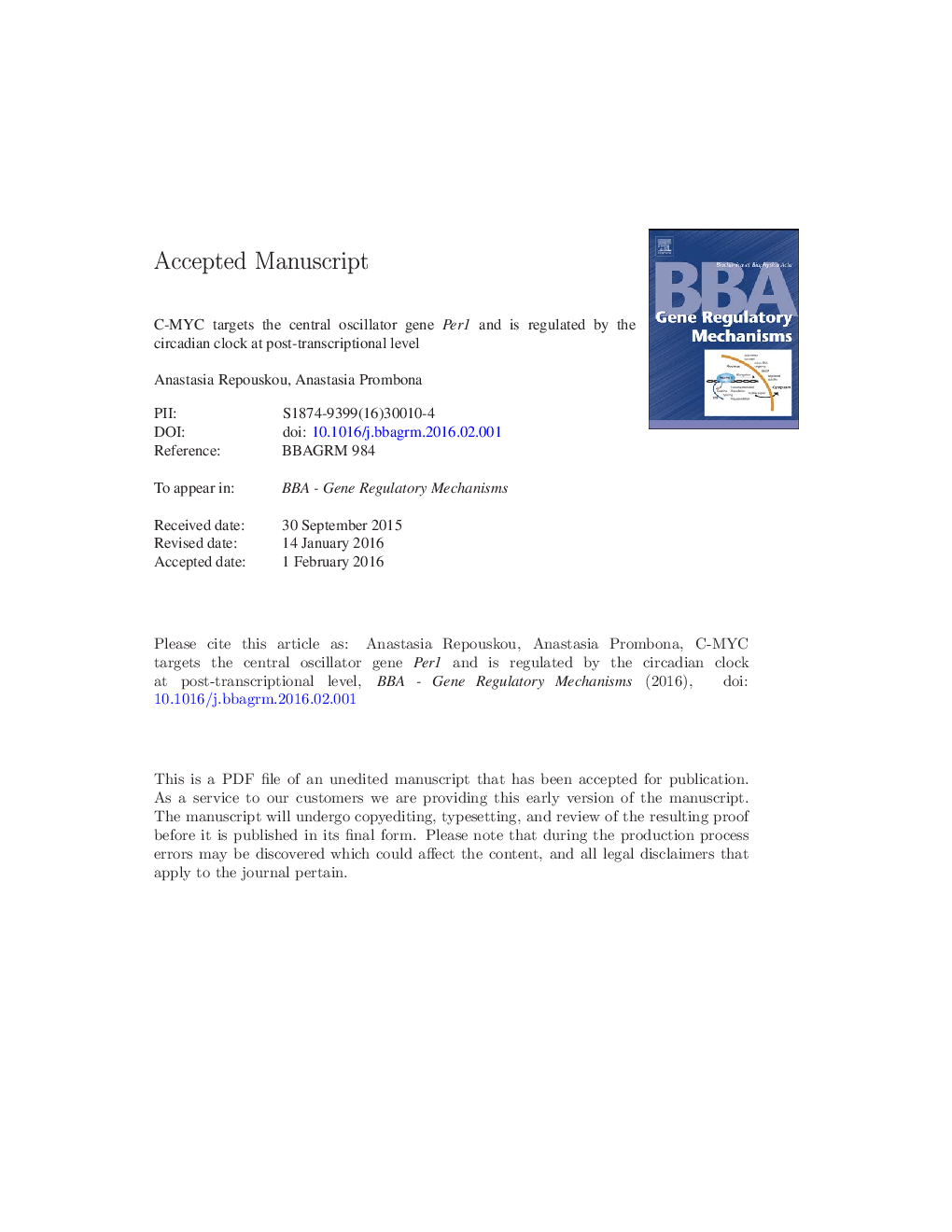| Article ID | Journal | Published Year | Pages | File Type |
|---|---|---|---|---|
| 10798973 | Biochimica et Biophysica Acta (BBA) - Gene Regulatory Mechanisms | 2016 | 48 Pages |
Abstract
Cell proliferation in mammals follows a circadian rhythm while disruption of clock gene expression has been linked to tumorigenesis. Expression of the c-Myc oncogene is frequently deregulated in tumors, facilitating aberrant cell proliferation. c-MYC protein levels display circadian rhythmicity, which is compatible with an in vitro repressive role of the clock-activating complex BMAL1/CLOCK on its promoter. In this report, we provide evidence for the in vivo binding of the core circadian factor BMAL1 on the human c-Myc promoter. In addition, analysis of protein synthesis and degradation rates, as well as post-translational acetylation, demonstrate that the clock tightly controls cellular MYC levels. The oncoprotein itself is a transcription factor that by responding to mitogenic signals regulates the expression of several hundred genes. c-MYC-driven transcription is generally exerted upon dimerization with MAX and binding to E-box elements, a sequence that is also recognized by the circadian heterodimer. Our reporter assays reveal that the MYC/MAX dimer cannot affect transcription of the circadian gene Per1. However, when overexpressed, c-MYC is able to repress Per1 transactivation by BMAL1/CLOCK via targeting selective E-box sequences. Importantly, upon serum stimulation, MYC was detected in BMAL1 protein complexes. Together, these data demonstrate a novel interaction between MYC and circadian transactivators resulting in reduced clock-driven transcription. Perturbation of Per1 expression by MYC constitutes a plausible alternative explanation for the deregulated expression of clock genes observed in many types of cancer.
Related Topics
Life Sciences
Biochemistry, Genetics and Molecular Biology
Biochemistry
Authors
Anastasia Repouskou, Anastasia Prombona,
